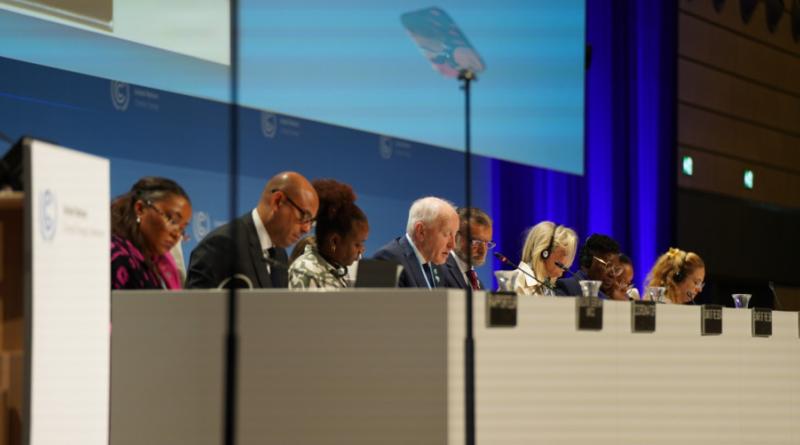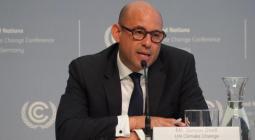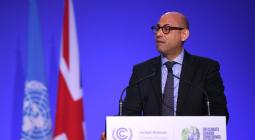June Climate Meetings Take Modest Steps Forward; Steep Mountain Still to Climb Ahead of COP29

June Climate Meetings Take Modest Steps Forward; Steep Mountain Still to Climb Ahead of COP29
UN Climate Change News, 13 June 2024 – The Bonn Climate Change Conference concluded today after two weeks of intensive work across a range of issues where progress is needed on the path to the UN Climate Change Conference (COP29) this November in Baku, Azerbaijan.
“We’ve taken modest steps forward here in Bonn,” said UN Climate Change Executive Secretary Simon Stiell in his closing speech. “[But] too many items are still on the table . . . We’ve left ourselves with a very steep mountain to climb to achieve ambitious outcomes in Baku.”
Areas of progress in Bonn include:
·Parties streamlined content going into the New Collective Quantified Goal on Climate Finance. Clear options and the substantive framework of a draft decision must be finalized before COP29.
·Parties took steps towards adaptation indicators that are forward-looking, effective, and scientifically sound.
·Progress was made towards a better functioning international carbon market, but further work remains to be done.
·Parties worked together for transparency and supported each other in planning stronger climate action plans.
A New Collective Quantified Goal on Climate Finance
The June Meetings hosted a technical expert dialogue (TED10) to enable in-depth examination of the elements of the New Collective Quantified Goal on climate finance (NCQG) – including how to make sure it is: ambitious, optimally structured, transparently reported on, and improves the quality of climate finance to developing countries.
Parties also spent several days working on developing a substantive framework for a draft negotiating text for consideration at COP29, outlining the text here in Bonn.
Stiell also noted the need for further progress on climate finance issues outside of the UNFCCC process, including by the G7. “Advanced economies have multiple levers to pull, including as shareholders in development banks.”
The Co-Chairs invited Parties to submit their consolidated and updated views on the NCQG so that they can produce a new input paper with options for TED11 and the third meeting of the ad-hoc work programme, which will be held back-to-back in October. A high-level ministerial dialogue on the NCQG will also be held in October to help pave the way for an outcome at COP29.
Progress on Building Resilience and Adaptation
At COP28 in the United Arab Emirates last December, Parties agreed measures for the Global Goal on Adaptation which created thematic targets that highlight forward-looking global priorities.
At the June UN Climate Meetings, Parties took important steps towards indicators in each of these thematic targets which will be inclusive, transparent and scientifically sound. Notably, Parties made progress on what is needed next, including how these indicators will be decided, as well as technical work ahead.
As part of the outcome of the Global Stocktake, UN Climate Change is urging Parties to develop National Adaptation Plans (NAPs) by the end of 2025, and to make progress in implementing them by 2030.
Only 58 developing countries have submitted a NAP. The secretariat has asked more countries to have a plan by 2025 and make progress on implementing them by 2030. Over the coming months, UN Climate Change will work directly with countries to accelerate the formulation of NAPs, including through its Regional Collaboration Centres.
Progress Made on International Carbon Markets Under Article 6
Delegates made important strides on key technical aspects of Article 6, including carbon credit authorization, activity scope, the international carbon market registry and more.
Constructive discussions in Bonn clarified positions on Article 6.2 and 6.4 ahead of COP29. Delegates also agreed to hold a workshop to further progress technical work on Article 6.2 and 6.4 ahead of November. As a result, they will be better placed to meet in Baku ready to finalize an outcome and move towards better carbon markets.
In the lead up to COP29, additional work on Article 6.4 will move forward. The UN Body responsible for operationalizing a new global carbon market under the Paris Agreement will meet twice ahead negotiations in Baku, to finalize recommendations on methodologies and emission removals. Feedback gathered from Parties and stakeholders at an engagement event during the June Climate Meetings will be incorporated into these recommendations.
The Supervisory Body also aims to finalize a Sustainable Development Tool in the run up to COP29, to establish environmental and social safeguards.
Completing the remaining elements on Article 6 in Baku will unlock further funding for national climate plans and adaptation.
Increasing Transparency
The incoming COP Presidency asked Parties to submit their Biennial Transparency Reports (BTRs) ahead of COP29 in Baku. These reports will help Parties build the stronger evidence base for ambition.
Several events took place during the June Meetings on the support available to developing countries, including the In-person Workshop on ETF Support and the In-session Facilitative Dialogue on ETF Support.
Later this month, UN Climate Change will deliver new Enhanced Transparency Framework reporting tools that integrate tracking of greenhouse gas inventories, action, and support. In partnership with Microsoft, UN Climate Change is also developing a new Climate Data Hub to bring this data to life.
UN Climate Change has already trained more than 1,100 experts from 150 countries, building the capacity of thousands of practitioners, including across other intergovernmental organizations.
Training sessions on the new reporting tools will be held in the Africa and Latin American and the Caribbean regions ahead of COP29, as well as at COP29.
Raising Ambition in Nationally Determined Contributions
Parties are required to deliver their next round of Nationally Determined Contributions (NDCs) early next year, aligned with the 1.5 °C limit, and covering all sectors and all greenhouse gases.
At the June Meetings, UN Climate Change and the NDC Partnership launched the NDC 3.0 Navigator, to help Parties access information that can help them develop new NDCs with a focus on implementation.
Other Issues and Events at the June Meetings
·The final review of the implementation of the enhanced Lima work programme and its Gender Action Plan (GAP) was initiated at the June Meetings – identifying progress, challenges, gaps and priorities in implementing the GAP, and further work to be undertaken. The discussions started at this session set the scene for developing the tools to embed gender in forthcoming NDCs, NAPs and transparency reports.
·The Standing Committee on Finance advanced preparations for the 2024 Forum on gender-responsive financing. Taking place from 2-3 September in Arusha, Tanzania, the Forum will highlight the critical importance of gender-responsive finance in achieving low-emission climate-resilient development and poverty eradication that will be equitable and inclusive.
·The Ocean and Climate Change Dialogue took place over two days at the June Climate Meetings, with a focus on two key topics – marine biodiversity conservation and coastal resilience, and ocean energy technologies.
·The Action for Climate Empowerment (ACE) Hub hosted an event to bring young people together for skills-building and knowledge-sharing. The focus this year was on local action. Fifty young people – 25 from around the world and 25 from Germany – came together to develop the skills they need to lead climate initiatives in their communities.
·The High-Level Climate Champions, Nigar Arpadarai (Azerbaijan) and Razan Al Mubarak (United Arab Emirates), organized a series of events that explored how businesses, cities, regions, Indigenous Peoples and civil society are working alongside governments to deliver ambitious climate action ahead of COP29.
·The third Glasgow Dialogue on loss and damage at the June Meetings discussed the coordination arrangements for the Fund responding to loss and damage, assessed progress made and developed further recommendations.
·Delegates at the June Meetings took part in the first annual dialogue on the Global Stocktake to help inform the preparation of Parties’ next round of NDCs.
·The third Global Dialogue and Investment-focused Event held under the Mitigation Work Programme focused on reducing the greenhouse gas emissions of cities and urban buildings.
·The first Dialogue under the United Arab Emirates Just Transition Work Programme took place at the June Climate Meetings with speakers highlighting the need for whole-of-society approaches to a sustainable future, that are inclusive, equitable and just.





